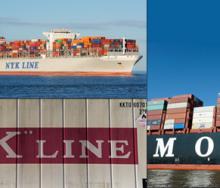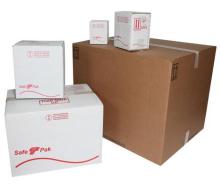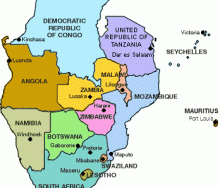What is big data in shipping?
First, it's important to recognise the difference between 'lots of data' and 'big data.' Traditional technology has been serving organisations’ analytics needs for decades, allowing them to analyse large data sets from traditional sources such as warehousing and distribution systems. ‘Big data’ takes it to the next level, allowing companies to harness extremely large data volumes, including non-traditional data types such as text, audio and video in conjunction with information from business systems in a much more economical fashion, in both batch and in real time modes. While the sheer volume of data available to a company today is daunting, the first step in leveraging 'big data’ is deciding on the problem you want solved, or the issues you need addressed, and then finding the proper data necessary. It's more than just 'look-back information', of say how many TEUs you shipped in May from Shanghai to Rotterdam, but rather pulling the data necessary to ship them cheaper, faster, or to achieve whatever metric you need addressed.
Is this just an expensive IT solution?
No – it's not about IT at all; remember the term “Garbage In = Garbage Out?" That's too-much data, not big data. A company needs to determine what they want to do...reduce costs? Increase revenue? Optimise transit times? These are all serious strategic issues for both a carrier and a shipper, whose implementation – or not – affects profitability on every voyage.
Big data and the ocean freight market
We’ve been sharing thoughts on big data since Xeneta first began operations and noted the importance of big data in assisting companies in achieving their business objectives, whether reducing costs or improving efficiency, or increasing sales, which is of interest to everyone. When properly used, big data will enable management to take a gut-feel decision and quantify it, which lets them take that good idea and make it work.
For ocean freight shipping, it's more than just 'look-back information' of say how many TEUs you shipped in May from Shanghai to Rotterdam, but rather pulling the data necessary to benchmark and ship them at a more competitive price, faster, or to achieve whatever metric you need addressed.
There’s always more to be said about big data and something that should be emphasised is the fact that it includes both internal and external data. Combining both of these types of data, analysing and deriving solutions based on your company’s strategy, is the goal of big data. What data to include is also a consideration. One school of thought is to gather all data, internal and external and then see what the computer spits out as a result. Another thought is to identify beforehand what needs to be analysed such as buyer and seller habits, customer satisfaction or lack of, market trends across all markets and industries, fuel costs, rates, material costs and so on. Like everything else in the supply chain market, no one size fits all so it will depend on your company’s specific needs and goals.
Despite what may seem to be an improving ocean freight market, the need is great to monitor it almost on a daily basis. Congestion at ports, bankruptcies, acquisitions, changes within alliances and potentially new ones can all impact your ocean freight invoice. How about insight into the market six months from now or just next month? Almost impossible without big data. While it may not give the complete forecast, it can certainly be used to mitigate potential risks.
Final thoughts on the use of big data shipping analytics for shippers and carriers
For the past few years most industries have been leveraging the power of data or "big data" to increase their pace of innovation and efficiency. The shipping and logistics industry, though usually a bit slower to pick up on digitisation, is now realising the importance data and technology has on making it relevant, competitive and susceptible to change.
While the sheer volume of data available to a company today is daunting, the first step in leveraging 'big data' is deciding on the problem you want solved, or the issues you need addressed, and then finding the proper data necessary.










